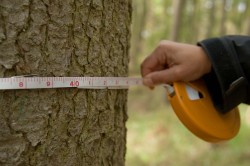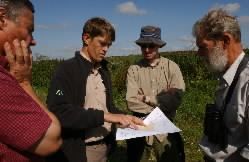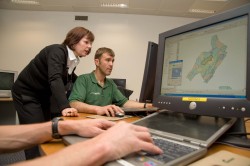Summary
Why aren’t all forestry operations guided by evidence-based modelling and decision support?
Summary
For over a decade Forest Research has been heavily in volved in projects to develop decision support systems to improve su
volved in projects to develop decision support systems to improve su stainable land and forestry management. The Forestry Commission and other stakeholders have adopted many of these tools in their planning and decision-making, but uptake is not universal. The study recommended more dialogue and collaboration between stakeholders to increase uptake and ensure systems meet users’ needs.
stainable land and forestry management. The Forestry Commission and other stakeholders have adopted many of these tools in their planning and decision-making, but uptake is not universal. The study recommended more dialogue and collaboration between stakeholders to increase uptake and ensure systems meet users’ needs.
Key findings/outputs
- The value of decision support systems is growing, driven by the growing demand for evidence based policy, in particular to respond to climate change.
- Uptake is heavily influenced by the extent and quality of stakeholder engagement during the development phase
- Developers should focus on the process and not just the product, working collaboratively to build trust and credibility and to identify user needs
- Barriers to uptake include cultural resistance among intended users: a lack of trust between foresters and scientists, and a sense that these systems may threaten professional judgement
- There is a general lack of user training and support
- All stakeholders must be clear on where decision support systems fit into the decision-making processes
- User groups should help developers to design systems that meet customer needs
- User groups must communicate effectively with scientists
- Compulsory use of these systems could increase uptake, but only if they satisfy a business need and are easy to use
In conclusion, we argue for a shift from a knowledge-transfer model of applied research (a unidirectional process) towards knowledge-exchange (dialogue between collaborating partners) and knowledge-interaction (shared cultures and institutions).
The research was carried out by the Social and Economic Research Group. It involved semi-structured interviews with 30 stakeholders across the sector, an online questionnaire survey and a literature review.
Publications
Funders and partners
Commissioned and funded by the Forestry Commission
Status
2009-2013
